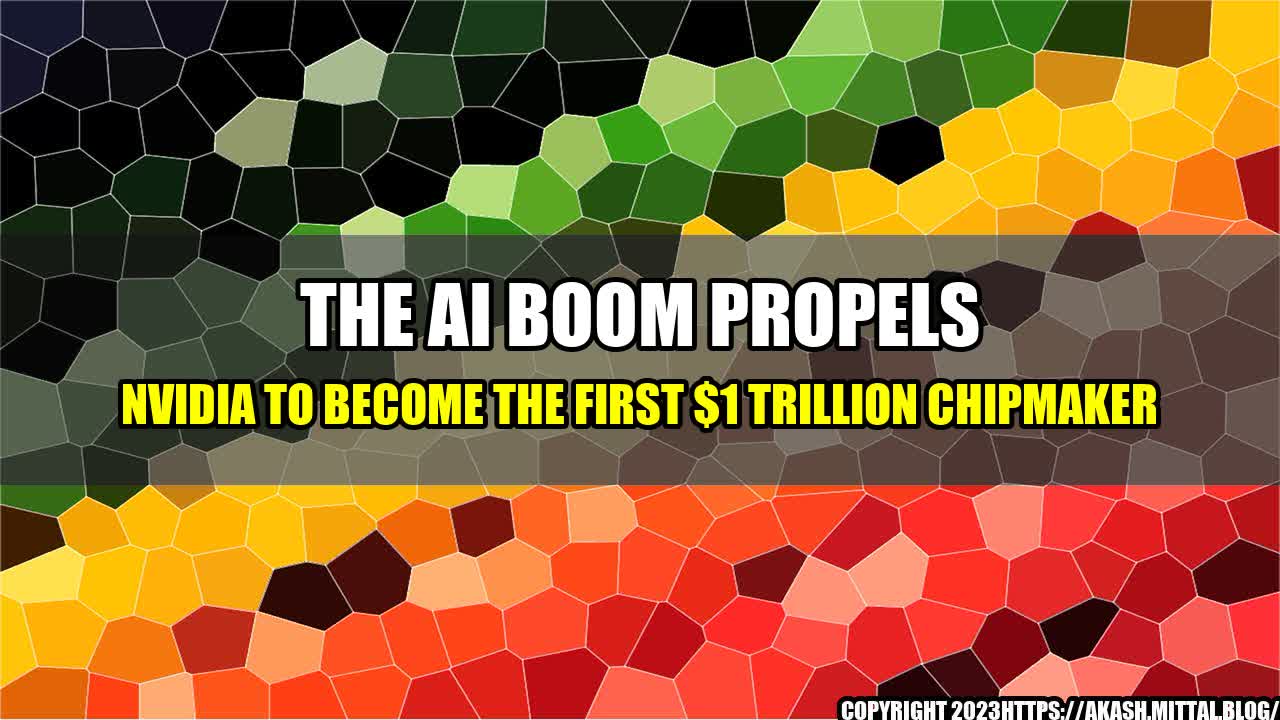
Did you know that the first autonomous car to drive coast to coast across the United States was powered by Nvidia's AI technology? Or that Nvidia's innovations are behind the breathtaking graphics of blockbuster games like Fortnite and Call of Duty? These are just a couple of the many examples of how Nvidia has transformed the tech industry with its cutting-edge chips and software.
Now, Nvidia has reached a new milestone: becoming the first chipmaker in history to be valued at more than $1 trillion. This impressive feat is largely thanks to the boom in artificial intelligence, which has propelled Nvidia's growth to dizzying heights.

Nvidia was founded in 1993 by Jensen Huang, Chris Malachowsky, and Curtis Priem, three engineers who saw the potential of graphics processing units (GPUs) to take on computing tasks beyond rendering images and videos. Fast forward to today, and Nvidia is a powerhouse in the tech industry with a diverse portfolio of products and services, including gaming GPUs, data center GPUs, and AI software.
One of Nvidia's key strengths is its ability to leverage AI to solve complex problems in a variety of industries. For instance, Nvidia has partnered with medical researchers to develop AI-powered cancer detection tools that can analyze large amounts of medical imaging data and identify cancerous cells with greater accuracy than human doctors. In the financial sector, Nvidia's hardware and software are used to power high-frequency trading algorithms that can analyze vast amounts of market data in real time and execute trades faster than human traders.
The success of Nvidia is not just anecdotal – the numbers are staggering. In 2020, Nvidia's revenue exceeded $16 billion, up from just $4.7 billion in 2016. Its market cap has skyrocketed from $14 billion in 2012 to over $500 billion in 2021, making it one of the most valuable companies in the world. Nvidia's success has also been recognized by financial analysts – in January 2021, Goldman Sachs named Nvidia stock as one of its top picks for the year, citing Nvidia's leadership in AI and its potential for continued growth.
But perhaps the most remarkable aspect of Nvidia's growth is its diversification. While Nvidia is still known for its gaming GPUs, the company has successfully expanded into new areas like data center GPUs and AI software. In fact, AI is now Nvidia's fastest-growing business segment, with revenue of over $4 billion in 2020. This growth is only expected to accelerate in the coming years as more industries adopt AI technologies.
So, what does the future hold for Nvidia? The short answer is: a lot. With AI becoming increasingly pervasive in our daily lives, there is no shortage of opportunities for Nvidia to innovate and grow. Here are three key areas to watch:
Nvidia's rise to become the first $1 trillion chipmaker is a testament to the power of innovation and the potential of artificial intelligence. From gaming GPUs to cancer detection tools, Nvidia has shown that AI can transform industries and improve human lives. As Nvidia continues to innovate and expand into new areas, we can expect even more groundbreaking products and services that push the boundaries of what's possible.
What's your experience with Nvidia's technology? Share your thoughts with us in the comments!
References:
Hashtags: #Nvidia #AI #chipmaker #autonomousvehicles #datacenters #edgeAI #technology
Category: Technology
Curated by Team Akash.Mittal.Blog
Share on Twitter Share on LinkedIn